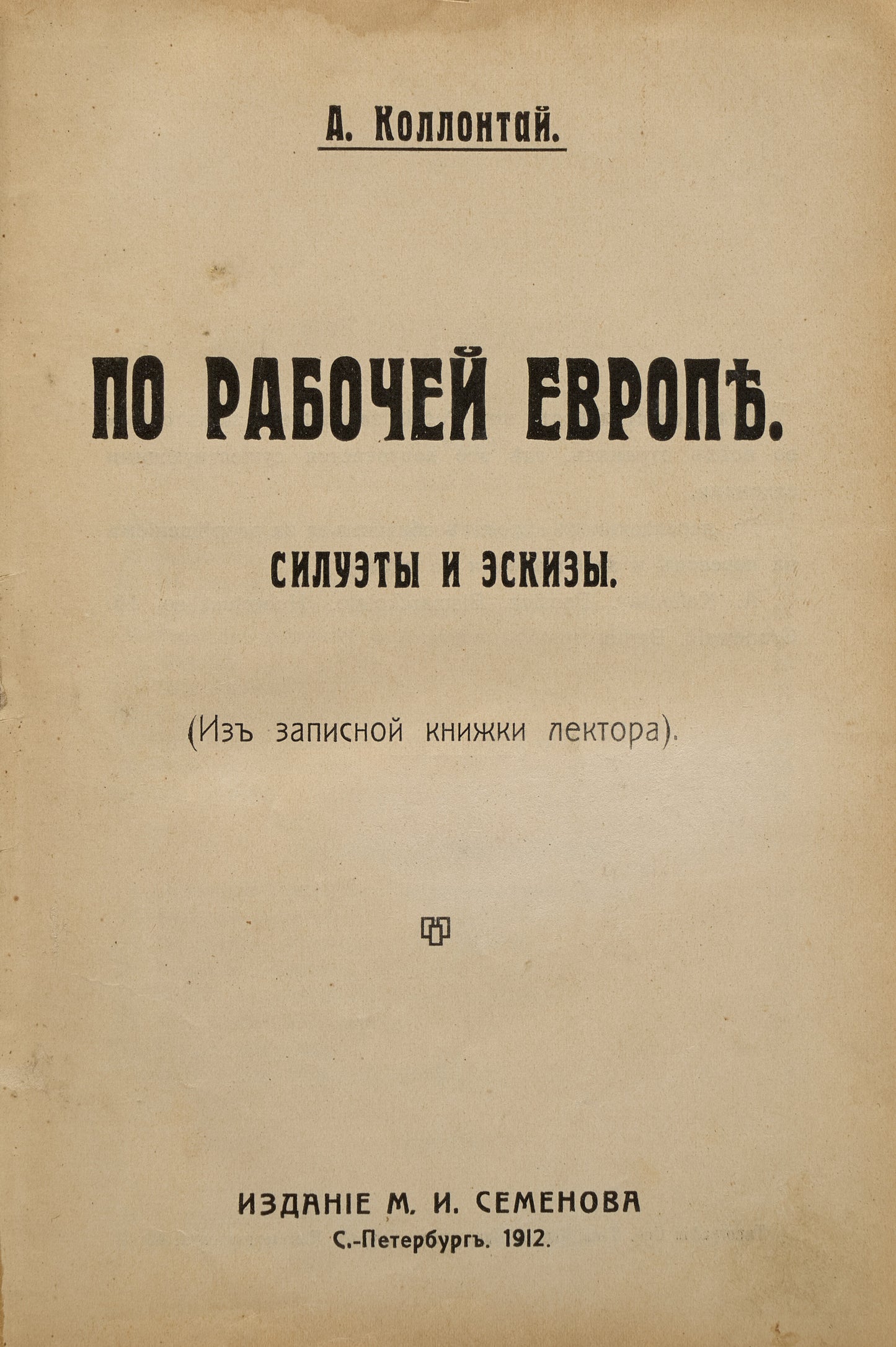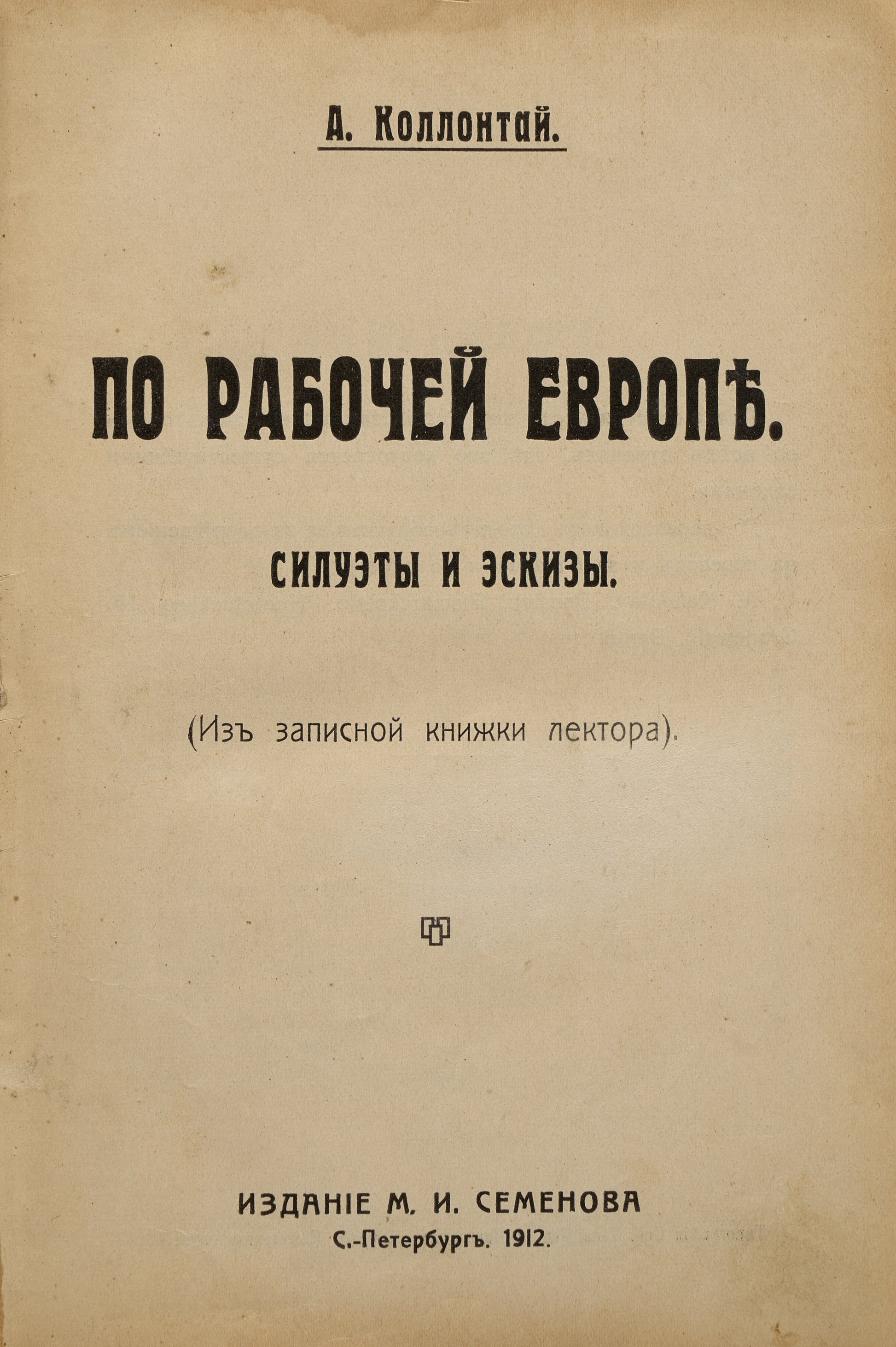Kollontai, A.
Around Workers' Europe. Silhouettes and Sketches. Rare first edition of Kollontai's autobiographical sketches written during her trip to Europe.
Around Workers' Europe. Silhouettes and Sketches. Rare first edition of Kollontai's autobiographical sketches written during her trip to Europe.
Couldn't load pickup availability
Kollontai, A. [Around Workers' Europe. Silhouettes and Sketches: (From the Notebook of a Lecturer)]. Po Rabochei Evrope. Siluety i Eskizy: (Iz zapisnoi knizhki lektora).
S.-Peterburg, Izdanie M.I. Semenova, 1912.
8vo, V, [3], 311 pp.
In contemporary owner boards.
In good condition, some spotting to spine cloth, lightly rubbed, short tears to title, very light dampstaining to upper edge, boards lightly bowed.
Rare first edition of Kollontai's autobiographical sketches written during her trip to Europe.
The book was written by Alexandra Kollontai (1872–1952), a political activist and member of the Soviet government. She was the first female to be a cabinet minister, and the first female ambassador in the world.
After publishing the work 'Finland and Socialism', which urged the Finnish people to rise up against oppression within the Russian Empire, Kollontai went into exile. Between 1909 and 1911, she embarked on a lecture tour, addressing German workers and farmers for the German Social Democratic Party. She visited Sweden and England as a representative of the Russian Social Democratic Party to participate in international congresses, and she traveled to Denmark as a guest of local socialists.
Drawing from her observations of laborers and impressions from these trips, she wrote this book, published in Saint Petersburg. Here she portrayed prominent socialist leaders, such as Henry Hyndman, Emile Vandervelde, and Jean Jaurès, in a less favorable light. Kollontai believed they had strayed from true Marxist principles, which she felt should more closely guide the labor movement.
The book caused a scandal in Germany due to her criticism of opportunism and the growing bureaucratization within the German Social Democratic Party’s apparatus. There were demands for her deportation, and the book was condemned as a 'slanderous pamphlet' and a 'satire on the German party'. This ultimately led to her break with the German Social Democrats.
In the summer of 1914, Kollontai was briefly arrested on suspicion of being a spy but was soon released. Following her release, she was forced to leave Germany and settled in Oslo. In March 1917, after the Russian Revolution, she returned to Russia, where she grew close to Lenin. She ultimately made history as the first woman to hold a government position, serving in key roles within the Soviet administration. In 1919, Kollontai was a leading figure in the foundation of the Zhenotdel, the then-new women's department of the Central Committee that was aimed at improving the status of women in the Soviet Union and be recognized as a key figure in Marxist feminism.






